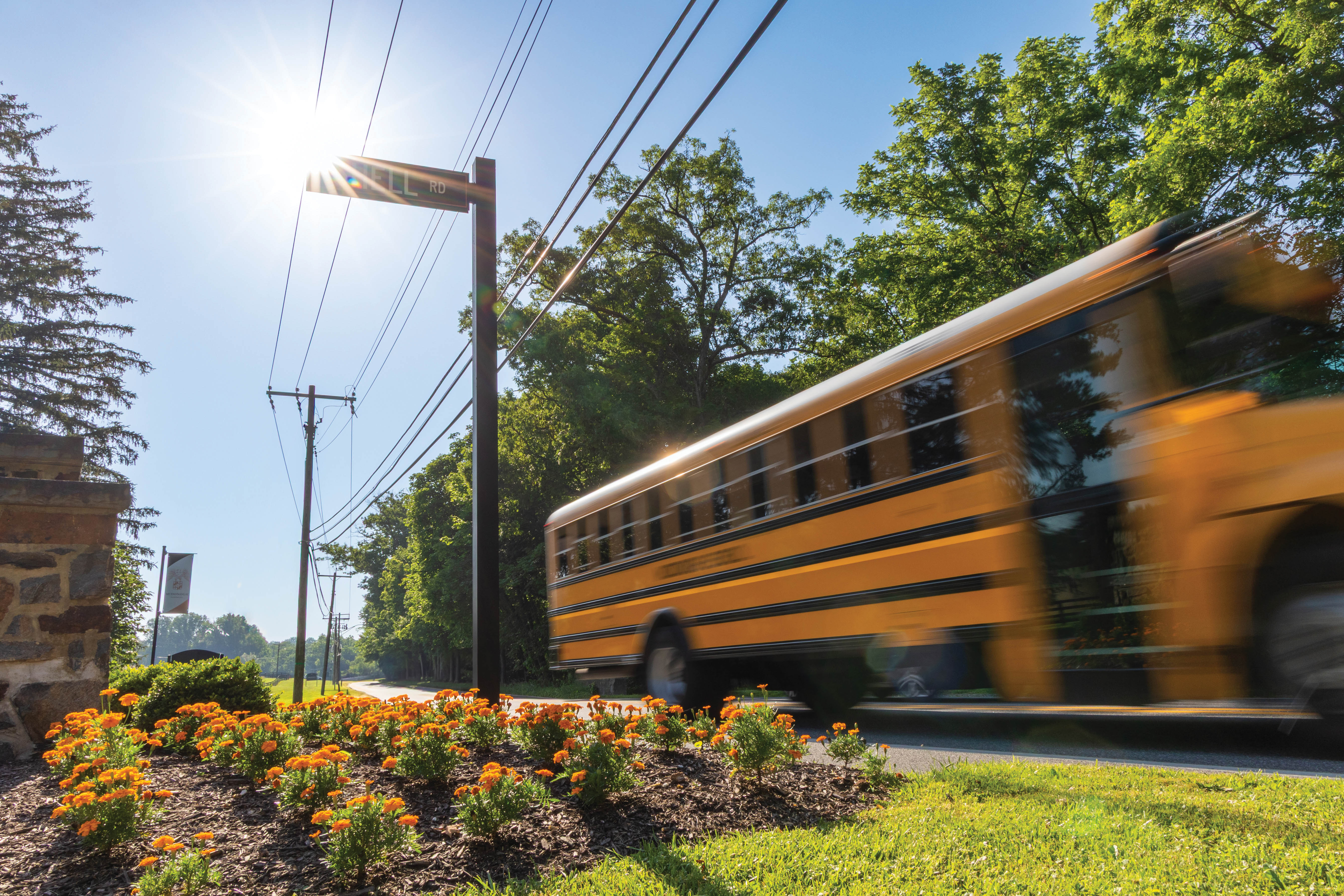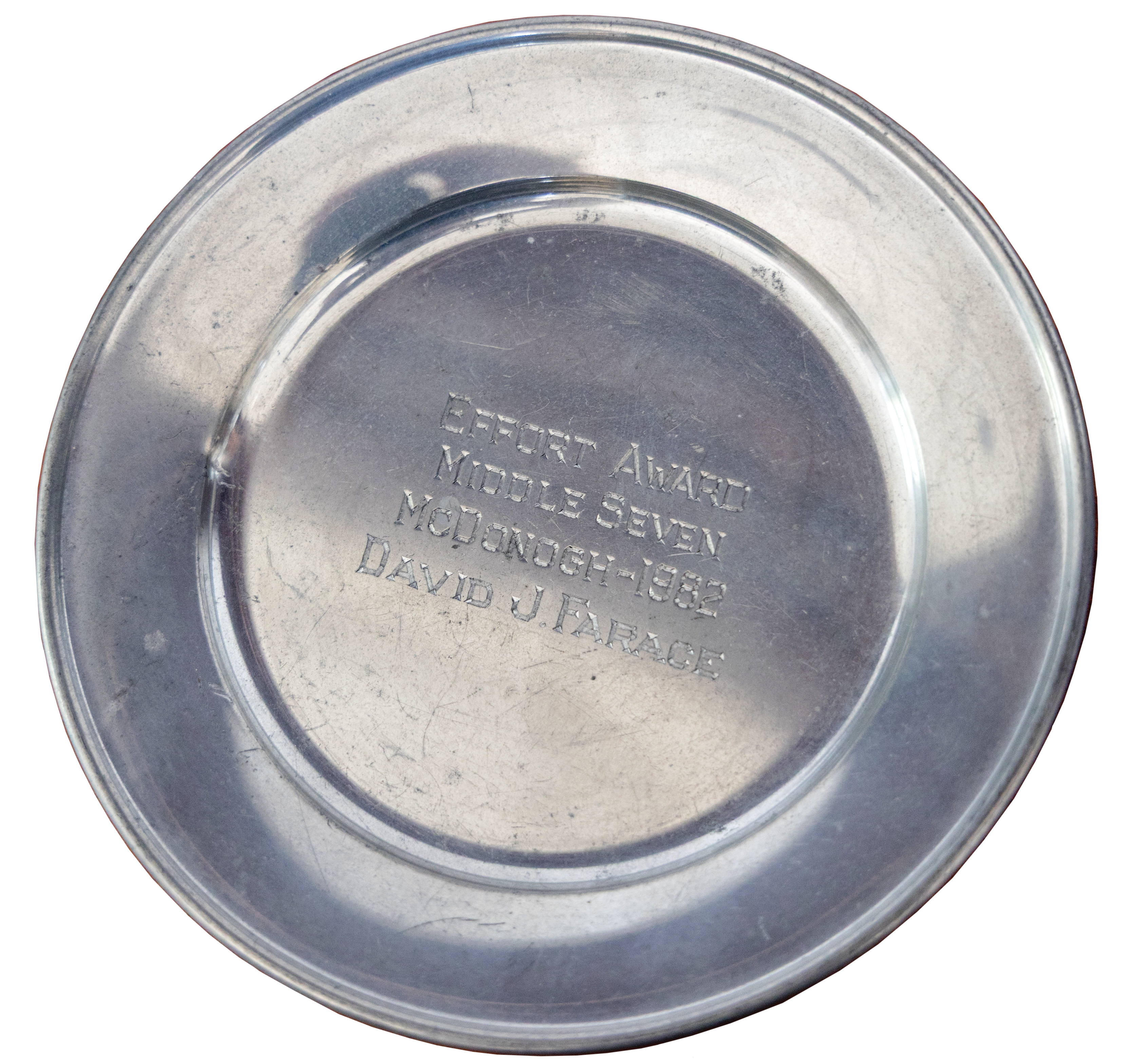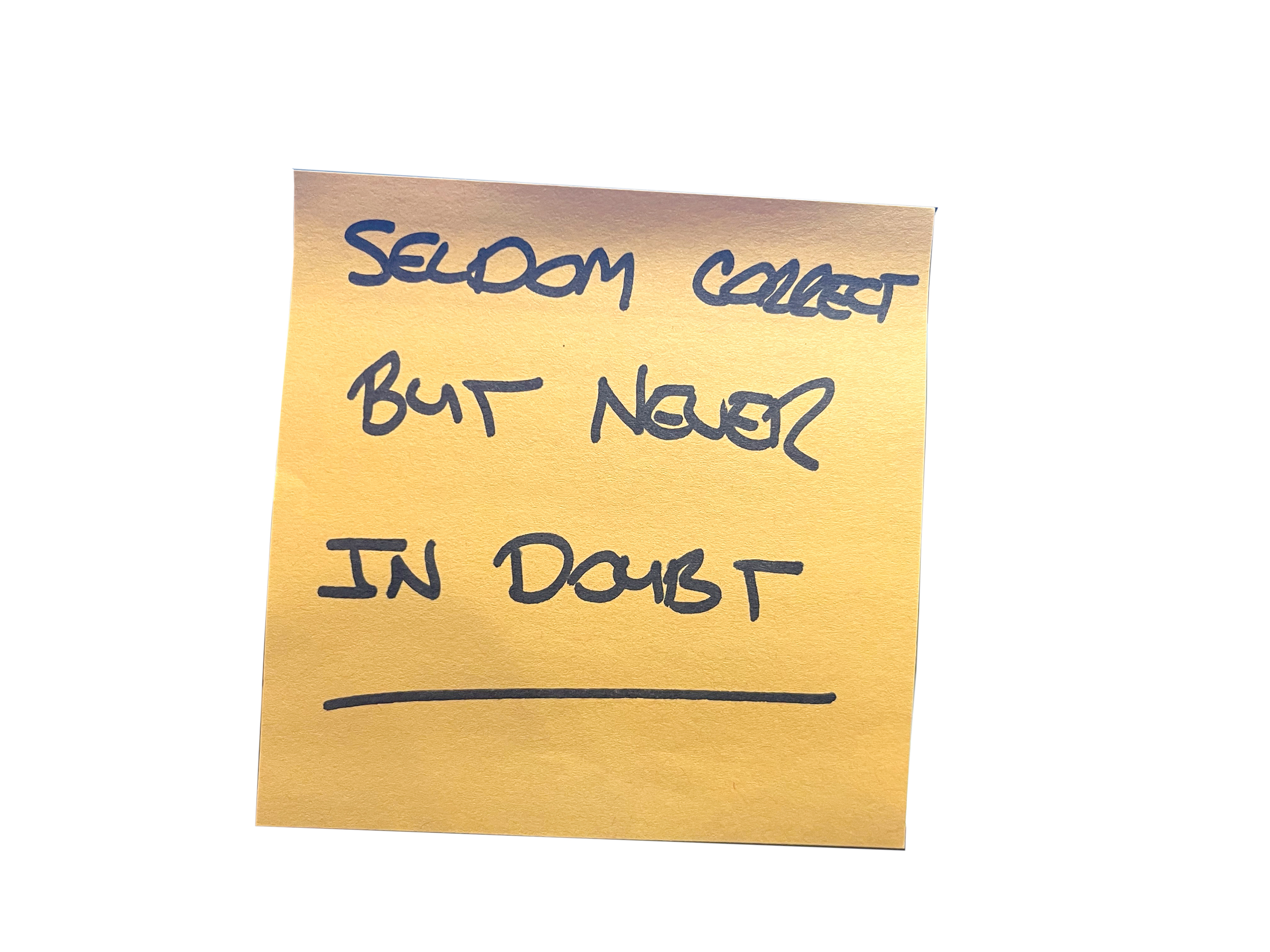
7 minute read
Q&A with Board of Trustees President and Head of School
Mike Cummings, Board of Trustees President
Dave Farace '87, Head of School
If you could swap roles with anyone else on campus for a day, whose shoes would you walk in?
[DAVE] I'd choose to spend the day as Groundskeeper Colby Gill. Every morning at 6:00 a.m., when I'm out walking my dog, I run into Colby, who's already hard at work maintaining our beautiful 800-acre campus. He embodies the idea that every role at McDonogh matters. What strikes me most about Colby isn't just his work ethic—it's his warmth and the pride he takes in making McDonogh look its absolute best. There's something deeply appealing about his work: it's tangible, immediately visible, and directly contributes to the sense of place that makes our School special. Plus, he gets to whip around on a cool mower!
If you could go back and be a McDonogh student for a day, which grade would you choose, and what activity would you be most excited to try?
[MIKE] If I could go back and be a McDonogh student for a day, I would choose ninth grade and spend that day in the Fader Innovation Center. I would take the opportunity to learn about robotics and engineering from the Upper School students and teachers. I am intellectually curious and always want to understand how things work. Spending time in Fader would be an excellent opportunity to feed that curiosity while broadening my social network with students and teachers who also share this interest in learning the "how" and "why" things work.
If you could add one hour to your school day, how would you spend it?
[DAVE] I'd dedicate that hour to what I call strategic stillness—protected time for professional learning and reflection. Leading a large independent school through today's complex challenges—from the rapid evolution of AI to political polarization, economic uncertainty, and the growing sense of disconnection among young people—can create a frenetic daily pace.
That additional hour would allow me to step back more often from the immediate demands and engage in the kind of thoughtful reading and strategic thinking that's essential for effective leadership but often gets crowded out by urgent daily decisions. It's the difference between being reactive and being prepared to guide our community through whatever comes next. The irony is that the busier we get, the more we need that quiet space to think clearly about where we're heading and why.
Is there something happening at McDonogh now that you wish had existed when you were in school?
[MIKE] Everything! I grew up in a small farming community in Western New York state and attended a small public school. The school had wonderful teachers who cared deeply for their students and provided us with the core learnings necessary to pursue our passions. That said, the academic, athletic, social, and extracurricular opportunities available to students in my hometown paled in comparison to those available at McDonogh. I can honestly say that if my school offered as many opportunities to explore interests as McDonogh does, I may have never left. While perspective often comes with age, it is my sincere hope that McDonogh students realize, while still in school, the immense opportunities they have to explore, learn, succeed, and fail in ways that they will not have again once they graduate.
What's one McDonogh tradition or value that you find yourself referencing in your life?
[MIKE] The foundation of McDonogh is its Character Compass, represented by the virtues of honesty, kindness, respect, responsibility, and service. These values are timeless and form the base upon which to build a life of integrity and purpose for each of us, regardless of age, occupation, or interests. Both personally and professionally, I think often of the Character Compass and try to use it as a guide for making decisions, particularly difficult ones where there are no good or easy answers.
If McDonogh had a time capsule to be opened 50 years from now, what would you contribute that represents the School today?
[DAVE] Assuming we have a very large time capsule, I'd include the cardboard boat that claimed "Best Overall Boat" (BOB) at our annual race. Race day itself is pretty magical. It represents everything we value: academic rigor applied playfully, community coming together across all ages, and the understanding that learning should be challenging AND fun. Fifty years from now, when someone opens that capsule and finds a cardboard boat, they'll know this was a place where education and joy lived side by side.

What's something you've learned about education or leadership through your role as Board Chair that surprised you?
[MIKE] Prior to my involvement with the McDonogh Board of Trustees, I had no exposure to the management and operation of academic institutions. My professional career is focused on investment banking and risk management, not education. I have been surprised to learn that while corporate work and academic work are different in many ways, they are also similar in at least one important way—schools, like companies, must attract and retain excellent people who are passionate in their areas of expertise, work collaboratively to provide the best possible outcomes, act with the highest integrity, and deliver experiences that are superior to the competition. This commonality of purpose is a focal point for much of the discussion among the Board and with School leadership.
What's your go-to lunch in the dining hall, and do you have any secret food combinations the students should know about?
[DAVE] For the record, I've loved McDonogh lunches since my time as a student in the Middle School! My go-to lunch is a salad topped with tuna, cucumbers, tomatoes, olives, pickles, and banana peppers.
What item on your desk might people be surprised to see?
[DAVE] A small pewter plate from 1982—the "Effort Award" for seventh grade, my very first year as a student at McDonogh. It was given to the one student in our grade who worked the hardest in and out of the classroom. As a nervous new kid who was definitely not the smartest student or best athlete, the award taught me that effort matters—that showing up and giving your best is important. It recognized what we now call a growth mindset (before that was even a term). That little plate helped shape a life philosophy that still guides me today: Show up. Work hard. Be kind. Plus, it keeps me humble. Every time I see it, I remember what it felt like to be the new kid, which helps me connect with students who might be feeling the same way today.

[MIKE] I have a handwritten sticky note that I penned decades ago. It reads: "Seldom Correct But Never In Doubt." I glance at this note often each day as a reminder to myself that I need to guard against being "that person." I need to take the time to do the work to understand the facts—not opinions or beliefs, but actual facts—before making decisions. The note also reminds me to "trust but verify" what I am hearing from other people. I have learned the hard way that just because someone is adamant they have the best answer does not mean they actually do. My sticky note is my reminder to invest the time required to separate fact from fiction in order to make thoughtful decisions.











